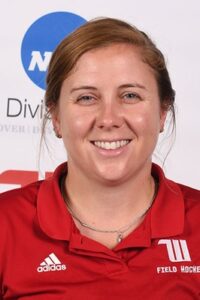Dear Students,
We, your professors, write to you today to commend you on your recent activism and efforts in pushing Wittenberg to reach its full potential. We are incredibly impressed by all of you who are pouring your hearts into defending and protecting our institution. You have stepped up to advance issues on diversity, transparency and fiscal responsibility, and have made us proud to be a part of this community.
We share your deep concerns about the current state of affairs at Wittenberg. As you continue to embody Wittenberg’s mission and values by “combin[ing] an awareness of suffering with a desire to respond,” we want you to have the details of this complex situation.
As we discuss Wittenberg’s challenges, you will see the term “fiscal year” (FY) used. This is the year according to our accounting procedures. At Wittenberg the fiscal year starts in July and ends in June. Thus, FY22 begins in July of 2021and ends in June of 2022. We are currently in FY20.
Financial Situation
1. There are three main financial issues facing Wittenberg: our structural deficit and two large but separate pieces of debt. We currently project yearly structural deficits of about $5-6M on a $48M budget. That is, the operational budget, excluding debt service, for this year has $48M in expense but only $43M in revenue. This imbalance arises from the day-to-day operations of the university. Such deficits have been ongoing for years, are unsustainable and must be addressed immediately. They affect our accreditation and our ability to run the university.
2. In 2016, we refinanced several pieces of debt, including debt taken on to build Hollenbeck and renovate Kuss, into one package. We negotiated a payment structure whereby we would only pay interest until FY21. The interest payments are currently being paid, and principal payments start next year. Both of these are in addition to the structural deficit.
3. To complete the Health, Wellness & Athletics Complex (HWA), Wittenberg took out $34 M in loans in 2018. We are currently paying interest on those loans and have principal payments due in FY20, FY22 and FY23. We have secured $20 M in pledges, donations, and tax credits, enough to cover the first two principal payments on those loans. The last payment is not yet accounted for. The yearly interest and FY23 principal payment are in addition to the structural deficit.
4. The consequence of this debt is that our creditors are given certain legal rights negotiated when the bonds are signed. Unless significant progress toward balancing next year’s budget is made, they are permitted to begin to make changes to personnel and the academic curriculum, as they see fit. This can be done with little faculty, staff, administrative or board input.
5. Separately from our creditors, we will be visited this fall by our accreditors (from the Higher Learning Commission). The HLC will perform a comprehensive evaluation of our status as an institution of higher education. Finances are a consideration in accreditation, and were a concern during HLC’s last visit in 2016 when they required us to make progress towards a balanced budget by this fall.
Origins of the Problem
6. The most egregious and financially damaging decisions at Wittenberg occurred before 2018.
7. The board of directors has ultimate fiduciary responsibility for the institution, and those who served on our board in the decade prior to 2018 bear significant responsibility for our current financial situation. However, fiduciary responsibility does not mean that aboard is obligated to personally cover any financial issues created from acting on behalf of the institution.
8. Senior administrators manage the institution, and those who worked for Wittenberg in the decade prior to 2018 bear significant responsibility for our current financial situation.
9. Faculty hold oversight responsibilities for academic programs and thus also share in the responsibility for aspects of our current financial situation.
10. Tenure is not the cause of our problems. However, it does constrain the way in which colleges and universities can address financial or staffing issues. Prior to attaining tenure, probationary faculty may be dismissed at the discretion of the school. Tenured faculty, however, are protected from dismissal under most circumstances and unless the department they teach in is discontinued.
11. Wittenberg has lacked consistent fundraising efforts. Our last comprehensive capital campaign ended in 2001, while our peer institutions hold 1 –2 of these fundraising events per decade. We are now in the silent phase of a comprehensive campaign to begin within the year.
12. President Frandsen arrived at Wittenberg with the HWA project already underway. He was handed an incredibly difficult situation to sort out, and ultimately faced a choice between halting the project mid-way, which would have left millions of dollars wasted in planning and construction costs and incurred penalties for allowing associated tax credits to expire, and seeing the project through despite having only 60-65% of the project funding covered.
13. The senior administrators responsible for overseeing years-long erosion of our finances, including those primarily responsible for the HWA project, no longer work at Wittenberg. We have a substantially new senior team, which collectively has more finance and administration expertise than Wittenberg has seen in decades.
14. Board members who served prior to 2018, some of whom remain on the board today, decided that no operating or endowment money would be used to finance the HWA project. This turned out not to be true.
15. President Frandsen’s decision to switch enrollment management companies likely contributed to the small entering class last fall. The size of this class adds to our challenges, as does our retention rate for the last three cohorts, and increases the urgency with which we must reduce our deficit.
Academic Program Futures Committee.
16. At its last meeting, the board commissioned a task force (the Academic Program Futures Committee) to evaluate options for finding $2.5 million from the academic budget. We must reduce academic program expenses by $2.5 million per year beginning no later than FY22. In addition, we must have larger incoming classes and increased retention in the future.
17. Faculty representation is guaranteed on the Futures Committee. However, this task force’s recommendations are likely to circumvent faculty governance procedures due to how quickly we must make progress on our deficit reduction plans. This is not to be taken lightly. Only in extreme circumstances would a university entertain the idea of suspending its faculty manual.
18. Moreover, the faculty body was asked to make cuts, using our governance structures, three times in the last eight years. This extremely difficult task was done with substantial effort and hard work, and twice resulted in the painful loss of programs and colleagues. Unfortunately, that process did not yield the amount of reduction needed for a sustainable model with our current and projected student enrollments. In fact, despite these cuts, our 11:1 student to faculty ratio is the same now as it was in 2012. It did reach a high of 14:1 in 2016, but has decreased progressively as we’ve hired new faculty and admitted fewer students. A sustainable model for Wittenberg includes increasing the student to faculty ratio from 11:1 to 13:1.
19. Although we deeply lament the need for the Futures Committee, we hope for a model of shared governance. Some faculty view the Futures Committee as a way to have representation and voice in the upcoming cuts. Some disagree and do not want any faculty to participate. Signing this letter are faculty representing both perspectives. Know that we maintain respect for each other regardless of these differences. We recognize we all want Wittenberg to succeed, and each of us is pursuing the path we think will be most successful.
20. All of us prefer the Futures Committee to work through processes and committees outlined in our manual, but the board must balance this desire with their fiduciary responsibility and the need to move with urgency.
Diversity Issues
21. Wittenberg has struggled with recruiting and retaining diverse faculty. The most recent cuts reduced the already-low number of African-American professors on campus. This is an important issue that faculty and students agree cannot be dismissed. The impact of this loss on the entire student body, but especially for Black students on campus, must be acknowledged. We are committed to moving discussions of these issues toward policy solutions, particularly through faculty committees that set rules for tenure &promotion and awards, in order to advance diversity, equity and inclusion in our ranks.
22. Our board must do better when faced with opinions that differ from their own. The behavior from some board members in reaction to some student protesters recently was unacceptable, and we appreciate the chairman of the board coming to campus to publicly apologize on the board’s behalf.
23. Since his arrival, President Frandsen has added six new members to the board. We welcome the increase in diversity and fresh perspectives represented by these recent additions. We are starting to build a better board.
24. The board is still lacking in representation from women. This is a systemic problem in the United States, as women collectively hold a small minority of seats on corporate boards. Our board should be concerned with solving, not contributing to, this problem.
Addressing these issues will involve painfully difficult decisions. More faculty will be let go. The personal and professional toll this will take, has already taken, is impossible to overstate. Ultimately, however, we aim to make Wittenberg thrive again. We are dedicated, along with you, to pursuing knowledge and truth with both moral courage and reflection, as our mission asks us to do. You, the students, will remain the focus as we work to make sure that Wittenberg is passing on light for the next 100 years.
Never stop demanding the best of Wittenberg administrators, board members, staff, alumni and us—your faculty. The freedom to question authority is a cornerstone of democracy, and your willingness to use your voices only makes Wittenberg stronger. As you ask questions and draw conclusions, embrace the liberal arts principle of seeking multiple viewpoints. For our part, we pledge to ensure you access to clear and accurate information to the best of our ability as we navigate our way through these challenging times.
Signed,
Doug Andrews, Professor of Statistics
Sally Brannan, Associate Professor of Education
Clifford Brown, Professor of Psychology
Amber Burgett, Associate Professor of Biology
Sheryl Cunningham, Associate Professor of Communication
Kelly Dillon, Assistant Professor of Communication
Ray Dudek, Associate Professor of Chemistry
Ed Hasecke, Professor of Political Science
Sunny Jeong, Assistant Professor of Business
Sarah Jurewicz, Assistant Professor of Practice of Health &Sport Studies
Stephanie Little, Chair and Associate Professor of Psychology
Mike Mattison, Associate Provost and Associate Professor of English
Michelle McWhorter, Associate Professor of Biology
Lindsay Meermans, Assistant Professor of Business
Adam Parker, Chair and Professor of Math & Computer Science
Richard Phillips, Associate Professor of Biology
Crispin Prebys, Associate Professor of Art
Kathy Reinsel, Associate Professor of Biology
Katie Warber, Chair and Associate Professor of Communication
Brooke Wagner, Associate Professor of Sociology
Jim Welch, Chair and Professor of Biology
Jeremiah Williams, Chair and Associate Professor of Physics
Rachel Wilson, Chair and Associate Professor of Business
Nancy Woehrle, Associate Professor of Psychology
Brian Yontz, Chair and Associate Professor of Education







#s 4,14,24 are particularly appalling.
Thank you for sharing this troubling, yet vital, information that is essential to crafting a wise solution to Wittenberg’s serious challenges. It is long overdue and should have come from the administration and Board also!
So, basically we spent a lot of money on stuff we couldn’t afford? And we assumed we’d eventually find money to pay for it? Did I read that right?
Starting a few years after my graduation in 1965, I contributed a small amount to Wittenberg every year. My years at Witt were extremely important and it seemed only right to give back. Over the years I increased the amount as I was able, eventually including a somewhat generous percentage in my estate plan. At my 50th reunion in 2015 I learned of the incredible irresponsibility and mismanagement that had taken place. I sadly reduced the percentage of my estate that Wittenberg will receive upon my death. If the situation improves substantially while I still have the opportunity, I may again increase my gift. It would give me great pleasure to be able to do so. Unfortunately, though, I am not optimistic.
And why are we adding sports…and joining odd distant leagues. What is the budget impct of each sport? Do we think offering “more” sports makes us better than offering fewer better more competitive sports? Clearly the small clusters of boys volleyball and water polo leagues are not a market force. Thet’re a drain.
Wow! I’m glad I was able to read the document & saddened by what I read. I find it almost incomprehensible that the Board(s) of record and President(s) could let this happen to such a fine institution. Truly the solution(s) will be painful, difficult, lengthy, and perhaps even ineffective given the amount of the deficit and the timeline(s) for obtaining the necessary funds.
Even with more reductions in expenses, the major breach of faith and trust by those previously in leadership and control, even asking every living WU graduate to pledge and give $200 or more annually for 7 years may be insufficient for saving our fine university. Large donations are wonderful and essential but Wittenberg needs all of us now. But convincing alumni that the right things will be done with those funds may be an arduous task at best. Hopefully we can all keep the faith one more time.